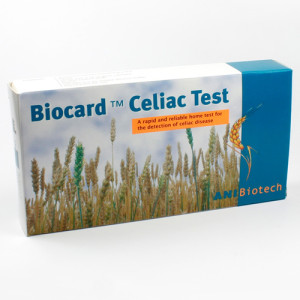Irritable Bowel Syndrome or IBS is also termed as spastic colon. This is a health problem that concerns the body’s digestive system. This is characterised by alteration of bowel habits bloating, chronic abdominal pain and discomfort in the digestive tract. Since there is an alteration in the bowel habits, the individual suffering from IBS can either experience LBM or constipation.
According to NHS Scotland, one in five people may experience irritable bowel syndrome (IBS) at some point in their life. Normally the disease is first detected in people when they are between 20 and 30 years old. Women are twice as likely to be affected as men.
Signs and Symptoms of IBS
Primarily, people with IBS experience discomfort associated with frequent alteration of bowel habits; constipation and diarrhoea. Abdominal pain is another common symptom to IBS. There are also other symptoms such as the following:
- Feeling of being bloated
- A need for frequent bowel movements
- Feeling of incomplete defecation
In most cases, IBS patients experience some sort of relief after the defecating. Studies have shown that 60% of IBS patients are diagnosed with anxiety, depression and psychological disorder. Therefore, bowel movement tends to be unpredictable considering the signs and symptoms. It is also common for IBS patients to experience gastroesophageal reflux disease or GERD, headache and fatigue.
What causes Irritable Bowel Syndrome?
Although there are a number of hypotheses on IBS, the cause is still unknown. However, it is reviewed that patients who have gone through acute gastrointestinal infection may have greater chances of experiencing IBS. In another viewpoint, depression, anxiety, prolonged fever and young age are some of the risk factors to IBS.
On the physiological aspect, IBS is explained further through the functioning of the intestinal tract. When IBS occurs, contraction in the intestines is stronger and longer lasting as compared to the normal intestinal contractions which follows a coordinated rhythm as soon as food enters the stomach. The normal intestinal contraction occurs from the duodenum down to the rectum. The bloated feeling in IBS is because of food moving from the stomach to the intestines in an abnormal pace which tends to be very fast. Apart from bloating, patient also experiences diarrhoea.
IBS can also happen the other way around. Food processed from the stomach to the intestines slows down causing the stool to harden and dry-up. In this case, constipation is experienced.
Patients with IBS may also encounter abnormal levels of serotonin. Serotonin is a chemical which is responsible in the normal functioning of the brain. This chemical also functions in the normal functioning of the digestive system. The abnormality of the bowel movement of IBS patients can possibly have an imbalance of good bacteria in the intestine.
What Triggers IBS?
What triggers IBS vary from person to person. Some of the elements or factors that trigger IBS are the following:
Food Intake
Although there are no specific food types that cause IBS, there are examples of food that causes the symptoms. This example of foods can cause either diarrhoea or constipation: alcohol, milk, chocolate. Examples of food that cause bloating are vegetables and fruits.
Spicy or fatty foods are also known to trigger IBS in some people. These types of foods can cause inflammation in the gut, leading to discomfort and digestive issues.
Processed foods are also a common trigger for IBS. These types of foods often contain additives, preservatives, and artificial sweeteners that can be difficult for the body to digest, leading to bloating, gas, and abdominal pain.
In addition to specific foods, eating large meals or eating too quickly can also trigger IBS symptoms. It’s important to pay attention to how your body reacts to different foods and eating habits in order to identify triggers and make the necessary dietary changes.
Hormones
While IBS happens more frequently in women, it is studied that hormonal changes is a factor to this condition. Actually, when women have their menstrual period, the signs and symptoms worsen.
For instance, during the monthly menstrual cycle, oestrogen and progesterone levels fluctuate. The decrease in progesterone and increase in oestrogen levels can trigger IBS symptoms. Additionally, the hormone motilin also plays a significant role in this condition as it regulates the contractions of the intestinal smooth muscles. Various studies have shown that motilin levels are often altered in patients with IBS.
Stress
Stressful events in the life of IBS patients actually worsen the sign and symptoms. Although stress magnifies the symptoms, it is not a factor that causes IBS.
In fact, stress is one of the most common triggers for IBS. When we experience stress, our bodies release a hormone called cortisol which can cause inflammation and disrupt the digestive system. This can lead to symptoms such as bloating, constipation, diarrhoea, and abdominal pain. Additionally, stress can also affect the way our brains communicate with our gut, leading to further digestive issues.
Stress can come from a variety of sources such as work, relationships, financial pressure, or even just daily stressors. It’s important for individuals with IBS to find ways to manage stress such as through mindfulness exercises, yoga, or therapy.
Overall, IBS is a complex condition with a variety of triggers. By understanding what causes your symptoms, you can make necessary lifestyle changes to manage and potentially reduce the frequency of flare-ups.

IBS Home Remedies That Can Make a Difference
There’s a lot that you can do yourself to prevent the uncomfortable side effects of irritable bowel syndrome. Nobody enjoys the cramping, bloating or gas that you get with this disease. Although our bodies are all different, there are some IBS home remedies that you can try to alleviate the symptoms.
Exercise
The benefits of working out to reduce stress, anxiety and depression are renowned, particularly when done regularly. Exercise will also help IBS. This is because anything that lowers stress can help reduce discomfort in the bowel through stimulating regular intestinal contractions. If you don’t exercise regularly already, just 30 minutes a day of mild exercise, 5 days a week, can make a big difference.
Chill Out
Learning how to relax can be of great benefit to anybody.Even more so if you are suffering from IBS. Three relaxation techniques that have been identified as being useful in this respect by the International Foundation for Functional Gastrointestinal Disorders include:
- diaphragmatic/abdominal breathing
- progressive muscle relaxation
- visualization/positive imagery
Mindfulness and IBS: A Powerful Connection
Mindfulness practices can be a game-changer for IBS sufferers. By focusing on the present moment and accepting sensations without judgment, you can reduce stress and ease digestive discomfort. Try these simple techniques:
- Breath awareness: Spend 5 minutes daily observing your breath. Notice the rise and fall of your abdomen.
- Body scan: Lie down and mentally “scan” your body from head to toe, noticing any areas of tension or discomfort.
- Mindful eating: Pay full attention to your meals. Chew slowly, savouring flavours and textures.
- Gut-directed hypnotherapy: This specialised form of hypnosis targets the gut-brain connection, potentially easing IBS symptoms.
Research shows these practices can decrease abdominal pain and improve overall quality of life for IBS patients. By incorporating mindfulness into your daily routine, you’re giving your mind and gut powerful tools to work together harmoniously.
Eat More Fibre
Fibre is a difficult one for sufferers of IBS. Although it can help relieves some symptoms such as constipation, it may make gas and cramps worse. The trick is to gradually increase your intake of high fibre foods over a number of weeks. These foods should be beans, fruits and vegetables.
Take Peppermint Oil Capsules
Peppermint is renowned as a digestive aid and used by millions in order to help support the healthy digestion of foods and to improve gut health. As a natural digestive aid, peppermint oil can relieve stomach pain by reducing abdominal discomfort and bloating. Peppermint Oil Capsules are a safe and natural way of combating IBS. Take one 50mg capsule before each meal, up to a maximum of three per day.
Cut Down On Dairy
Many people who are lactose intolerant also have IBS. Some IBS sufferers find great benefit when they cut down on dairy products in their diet. In some cases, your doctor may suggest avoiding dairy products completely, in that case you’ll need to make sure that you take on enough protein and calcium from other sources, making sure that you maintain a healthy, balanced diet.

Probiotic Supplements Can Help
Adding natural supplements to your diet can help with IBS by generally supporting digestive health. Amongst the many, we recommend:
Pro Billion Daily Capsules – Probiotics, the “friendly bacteria” found in your gut, play an important role in digestion. Pro Billion Daily offers 1 billion viable bacteria units in each capsule, helping you to support your gut flora, all within one vegetarian capsule. These convenient capsules are particularly helpful after courses of antibiotics, when your natural gut bacteria are depleted. Each pack contains 120 capsules, providing a full three-month supply at the recommended dosage.
Pro Bio Live Max 6 Billion CFU Veg Capsules – a slightly stronger probiotic capsule, these contain 6 billion viable bacteria units within a vegetarian capsule. The formula includes fructooligosaccharides (FOS), a prebiotic that helps the good bacteria thrive in your gut. This 20% higher potency formula is ideal for those experiencing more severe IBS symptoms.
Pro Billion X20 Capsules – these powerful Lindens Probiotic X20 Capsules each have an incredible 20 BILLION viable bacteria in each vegetarian capsule. According to Harvard Medical School, this level of probiotics can significantly improve immune function and protect against harmful bacteria. The mega-potent formula is perfect for restoring gut balance quickly after serious digestive disturbances.
Pro Bio Live Plus (+dietary fibre) Capsules – these probiotic capsule each contain 1.5 billion viable bacteria, fortified with 2 kinds of dietary fibre to help you help your gut with one easy-swallow daily capsule. The combination of Psyllium Husk and Inulin fibers helps regulate bowel movements, beneficial for both diarrhea and constipation forms of IBS. This dual-action approach makes it an excellent choice for those with unpredictable IBS symptoms.
Could you be suffering from Coeliac Disease?
Many people think they have IBS when they really have Coeliac Disease. Want to know if gluten is causing your gut issues? Take a quick Coeliac Disease Test. The Zoom Health test is easy to use and gives results in just 10 minutes.
Coeliac Disease is much more than just gluten upset. It’s when your body fights against itself. When you eat gluten, your body attacks your gut. This stops you from getting the good stuff from food. Over time, this can make you very sick.
Think you might have Coeliac Disease? Don’t wait to get tested. The Zoom Health test is trusty and you can do it at home. After you know for sure, your doctor can help you make a plan. You’ll need to change what you eat to feel better and stay healthy.
So if your tummy troubles won’t go away, try a Coeliac Disease test. It’s a simple way to rule out this serious issue. One quick test could help you take back control of your health and feel good again.
Main Photo by Fa Barboza on Unsplash
Second Photo by Danilo Ćalić on Unsplash
Zoom Health is a leading UK supplier of Home Health Tests and Earplugs
This post was originally published in 2017. It was last updated in March 2025.






